 History
History  History
History  Weird Stuff
Weird Stuff 10 Wacky Conspiracy Theories You Will Need to Sit Down For
 Movies and TV
Movies and TV 10 Weird Ways That TV Shows Were Censored
 Our World
Our World 10 Places with Geological Features That Shouldn’t Exist
 Crime
Crime 10 Dark Details of the “Bodies in the Barrels” Murders
 Animals
Animals The Animal Kingdom’s 10 Greatest Dance Moves
 Movies and TV
Movies and TV 10 Box Office Bombs That We Should Have Predicted in 2025
 History
History 10 Extreme Laws That Tried to Engineer Society
 History
History 10 “Modern” Problems with Surprising Historical Analogs
 Health
Health 10 Everyday Activities That Secretly Alter Consciousness
 History
History 10 Dirty Government Secrets Revealed by Declassified Files
 Weird Stuff
Weird Stuff 10 Wacky Conspiracy Theories You Will Need to Sit Down For
 Movies and TV
Movies and TV 10 Weird Ways That TV Shows Were Censored
Who's Behind Listverse?

Jamie Frater
Head Editor
Jamie founded Listverse due to an insatiable desire to share fascinating, obscure, and bizarre facts. He has been a guest speaker on numerous national radio and television stations and is a five time published author.
More About Us Our World
Our World 10 Places with Geological Features That Shouldn’t Exist
 Crime
Crime 10 Dark Details of the “Bodies in the Barrels” Murders
 Animals
Animals The Animal Kingdom’s 10 Greatest Dance Moves
 Movies and TV
Movies and TV 10 Box Office Bombs That We Should Have Predicted in 2025
 History
History 10 Extreme Laws That Tried to Engineer Society
 History
History 10 “Modern” Problems with Surprising Historical Analogs
 Health
Health 10 Everyday Activities That Secretly Alter Consciousness
Top 10 Dirty Tricks Pulled By US Politicians
The political climate in today’s United States is rife with political extremism and increasingly negative attack ads designed to prey on the fears of either party. However, the tricks used in earlier elections, even those involving the founding fathers, would cause the most hardened extremist to blush.
10Grover Cleveland And The Murchison Letter
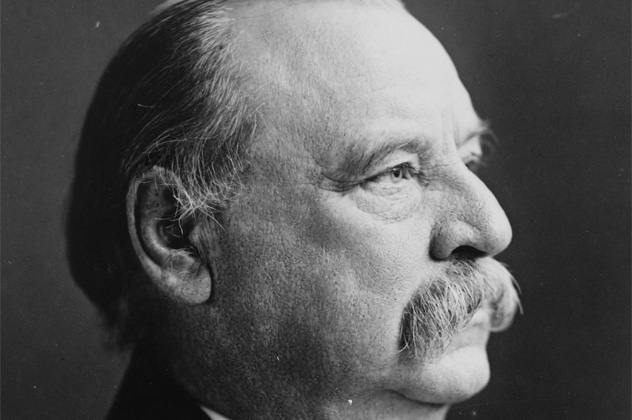
Fresh off his first term as president, Grover Cleveland was once again embroiled in a hard-fought presidential election. As he tried to court the English-American vote, the incumbent president was a target of various farming groups thanks to his pledge to lower tariffs on foreign-grown crops. In order to ensure Cleveland’s defeat in the upcoming election, a man named George Osgoodby penned a phony letter under the pseudonym “Charles F. Murchison” and sent it to Lionel Sackville-West, the British ambassador in Washington.
The letter asked for advice on the best candidate to vote for, and the diplomat—overstepping the bounds of propriety—said that he would give his vote to Cleveland and the Democrats. Just two weeks before the election, both letters were published in newspapers across the country. Most of the Irish-Americans, bitter at their countrymen’s treatment at the hands of Great Britain, sided with the Republicans. The unexpected swing of voters handed the election to the Republican candidate, Benjamin Harrison. Before he left office, Cleveland demanded the dismissal of Sackville-West from his post, citing the letter and Sackville-West’s general attitude as the reasons.
Read more about the dirty tricks of men in office with Dirty Politics? at Amazon.com!
9JFK Buys An Election
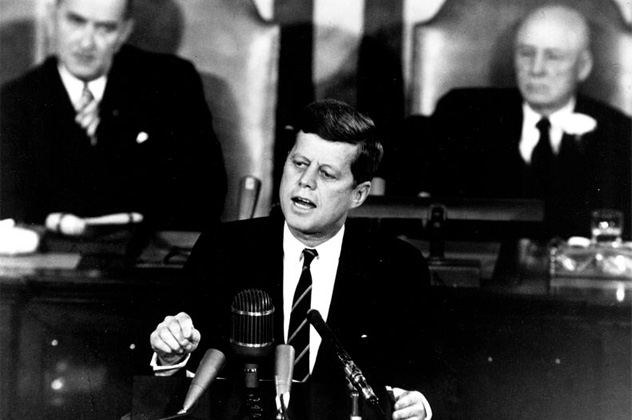
Who knew Nixon could be the victim of political trickery? During his heated 1960 election battle with John F. Kennedy, Nixon fell prey to a number of dirty tricks which ultimately handed the victory to the Democrats, one of which was the accusation of tremendous ballot stuffing in two key swing states. The first inkling of Kennedy’s no-holds-barred approach came when he spread the fact that Nixon had secretly taken money from billionaire Howard Hughes, a man whose business relied on government contracts. Various publications, such as Time magazine, corroborated the story but refused to publish it.
The money in question was a loan for Nixon’s brother and mother totaling $245,000 which Hughes allegedly gave after Nixon promised to grant tax-exempt status to Hughes’s medical institute, though there was no actual evidence that Nixon influenced anything in order to help out Hughes. This story came out as the result of Kennedy paying the equivalent of $100,000 in today’s money to an LA accountant named Phillip Reiner, who had helped hide Nixon’s role in everything. A break-in at Reiner’s office mysteriously occurred a short time later and the Kennedys were able to pass the documents along to two liberal journalists who had been attacking Nixon for years. The story was then picked up all across the nation and contributed to Kennedy becoming president.
8Rod Shealy And Benjamin Hunt Jr.
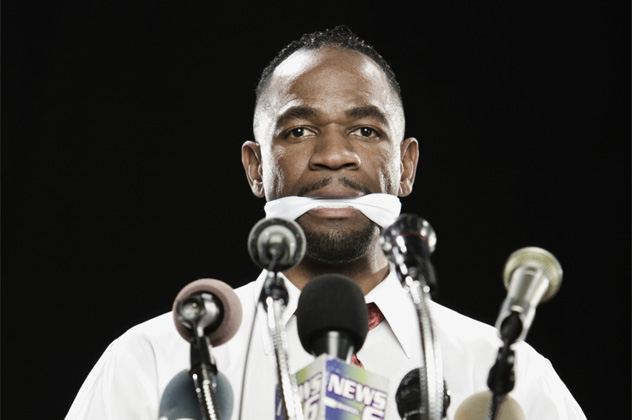
The owner of a small chain of South Carolina newspapers, Rod Shealy was a political consultant and strategist for the Republican Party who helped with the elections of Lindsey Graham, Jim DeMint, and George W. Bush, to name a few. However, it was his work concerning his sister’s lieutenant governor race which brought out his dirtiest trick. In 1990, Shealy’s sister, Sherry Martschink, was running for office in South Carolina. Shealy was concerned that racially conservative voters partial to his sister would neglect the Republican primary since an African American was leading in the Democratic primary and state law allowed a voter to only vote in one primary. If too many people voted in the Democratic primary, Martschink wouldn’t be able to recover.
In order to ensure their vote in the Republican primary instead, Shealy hired an unemployed black fisherman named Benjamin Hunt Jr. to run for Congress as a Republican, even going so far as to pay the filing fee himself. In the end, it didn’t matter because Martschink was defeated and the plot was uncovered. Shealy was pegged with a $500 fine, which he glibly referred to as “a political parking ticket.”
7James K. Polk’s Slave Branding
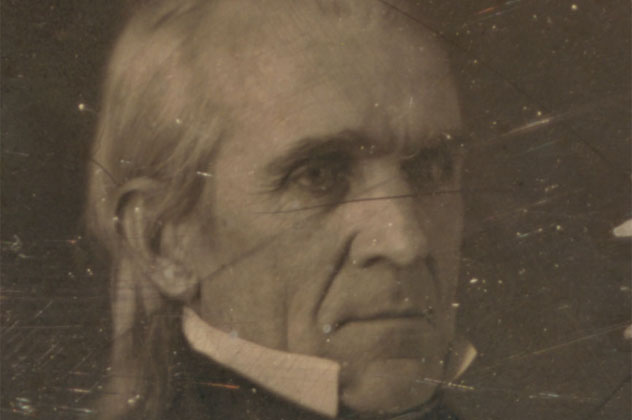
Proof that personal attacks are not a recent addition to presidential elections, a controversy known as the Roorback forgery took place in 1844 involving James K. Polk. A Democrat, Polk was up against Henry Clay, a member of the Whig Party. The election swung on a number of issues, with the most important of those hinging on the institution of slavery. In an attempt to garner the abolitionist vote, Clay and the Whigs played up Polk’s slave-owning status—a delicate balancing act, seeing as how Clay owned slaves as well.
In order to set Polk apart and hopefully condemn him, they concocted a rumor that he was a “super” slave owner, going so far as to claim that Polk had branded 40 of his slaves in order to distinguish them from others. The story quickly spread and was republished in at least one pro-Whig newspaper, but Polk vociferously denied it. His team brought out evidence showing that the branding story had been plagiarized from a story about a different man. Apologies and retractions soon followed, but the the Whigs never recovered from the backlash and Polk was elected.
6“Coya Come Home”

A relatively unknown Minnesota congresswoman, Coya Knutson was the first woman from her home state to be elected to Congress, an achievement for which she should be lauded. However, thanks in part to her alcoholic husband and troubled marriage, she is instead remembered for one of the dirtiest political tricks ever concocted. An independent voter, Knutson was frequently challenged by her own party, defeating her opponents time and time again. On Mother’s Day 1958, during Knutson’s campaign for a third term, a letter was published that had been signed by her husband and was titled “Coya Come Home.”
In the letter, Andy Knutson “pleaded” with his wife, saying, “I’m sick and tired of having you run around with other men all the time and not your husband.” This played on the rumors that Coya had started an affair with her campaign manager. Even though she could have used her husband’s abuse (she was frequently seen with black eyes) or his alcoholism as an excuse, she refused to reveal them to the public. She ended up losing the election by a slim margin, and Andy later admitted to not writing the letter, claiming that someone else had just paid him to sign it. The true author’s identity was never uncovered.
5“Vote For Cuomo, Not The Homo”
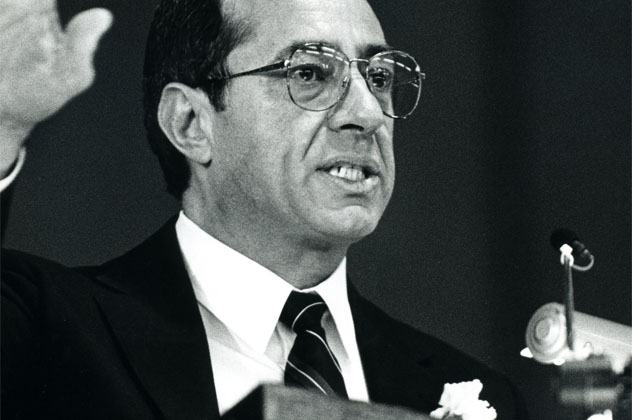
In 1977, Ed Koch had decided to leave Congress in order to run for mayor of New York City after years of crime and a poor economic climate had stunted the city’s growth. He ended up winning a run-off election against his fellow Democrats, including Mario Cuomo, who had decided to run against him as a Liberal Party member in the general election. However, during the primary election, a process Koch later described as “a civil war . . . brother against brother,” a scandal broke out over Koch’s sexuality.
A lifelong bachelor with no children, rumors had always swirled about the future mayor’s sexual orientation, but nothing of substance had ever been uncovered. Nevertheless, posters were suddenly found all over the city with the following slogan: “Vote for Cuomo, Not the Homo.” It was fairly common knowledge that everyone suspected Cuomo, or at least his son Andrew, of trying to make Koch’s sexuality an issue, but no proof was ever found. In order to combat the rumors, Koch’s campaign manager had him constantly smooch and hold hands with Bess Myerson, a former Miss America. Koch ended up defeating Cuomo.
4Upton Sinclair And The Homeless
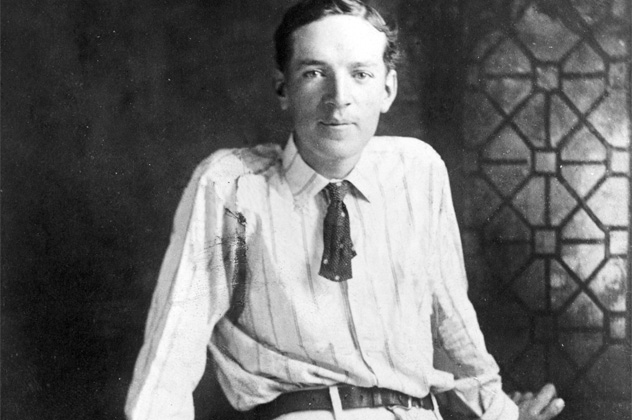
By the early 1930s, Upton Sinclair was already a famous novelist and an instrumental part of the reforms sweeping across the meatpacking industry thanks to his eye-opening 1906 novel The Jungle. A socialist at heart, he felt the place he could affect the most change would be in public office, so he decided to run for governor of California. Having already failed twice on the Socialist ticket, Sinclair switched to the Democratic Party, emboldened by FDR’s successful presidential bid and the implementation of the New Deal. He started the group End Poverty In California and began a grassroots campaign to defeat his Republican opponent.
Fears of a rampant flood of poverty-stricken state immigrants danced around the heads of California voters, a fact which Sinclair’s opponents were all too happy to take advantage of. The most infamous attack ad, one of the first ever devised, featured a number of “interviews” with people denouncing the idea of an influx of hobos to their home state. However, many, if not all, of these men were actually actors reading from scripts that had been written by the Republican strategists. Nevertheless, the ads worked and Sinclair lost the election.
Read the famous novel that started a cultural movement. Buy Upton Sinclair’s The Jungle at Amazon.com!
3LBJ And The “Daisy Girl”
One of the most infamous attack ads of all time aired in 1964 during Lyndon B. Johnson’s brutal campaign against Barry Goldwater. Goldwater was seen as too accepting of the idea of using nuclear weapons, and it was that fear which Johnson’s team played on. The commercial, which was aired constantly despite Johnson only paying for one airing, featured a young girl picking petals off a daisy while counting up to 10. Immediately after she finished, a military voice began counting back down to one.
Upon reaching the end of his countdown, the girl looked up, scared by something, and a mushroom cloud filled the screen. Johnson’s voice came on, declaring that the stakes were too high to be careless about one’s vote. Controversy immediately surrounded the ad. Goldwater’s team fought hard against the ad, declaring it a new low in American politics. It was a fight which may have benefited Johnson more than Goldwater. In the end, Johnson was easily elected to the presidency, a post he had already been filling since JFK’s assassination.
2Andrew Jackson And The Coffin Handbills
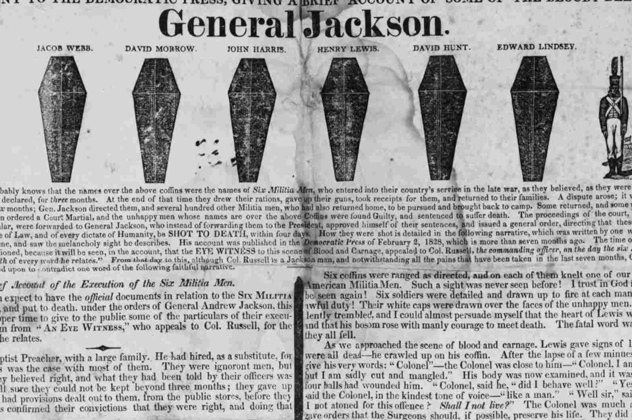
Andrew Jackson had a reputation for toughness (his nickname was “Old Hickory”), and he needed every bit of it to survive the controversy which arose after his opponent, the incumbent President John Quincy Adams, revealed a number of facts about Jackson in a series of pamphlets known as the “coffin handbills.” A few specific incidents were mentioned, including the slaughter of 1,000 unarmed Native Americans, but the worst was the claim that Jackson had personally eaten a dozen of the men, then tried to force his men to do the same.
The pamphlets claimed that when he was serving in the Army as a general during the Creek War, Jackson came upon a large settlement of Native Americans and massacred them, later claiming that they were armed and the killing was justified. The most resonant part of the coffin handbills were the images of six different coffins, each representing a soldier who had been executed by Jackson for deserting. Described as an unnecessary act of cruelty, it was meant to portray him as an iron-fisted ruler with no regard for circumstances. However, it didn’t do enough to sway public opinion against Jackson, and he won the election.
1Thomas Jefferson’s Dead?
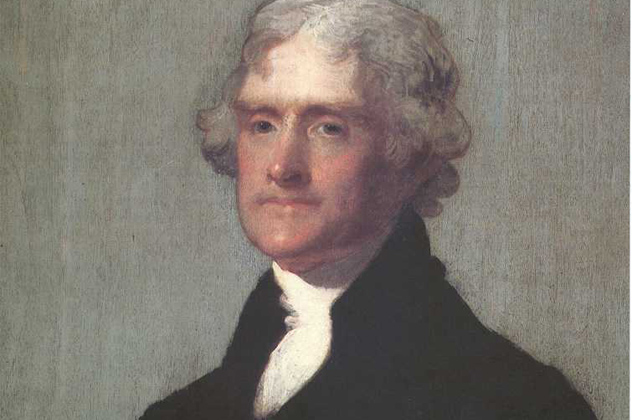
The founding fathers were no strangers to dirty tricks, and the one pulled on Thomas Jefferson during the 1800 presidential election was one of the dirtiest. In early July, just as the race was heating up, headlines sprung up across the country reporting that Jefferson had suddenly died. Granted, most of the papers which published the story favored his opponent and the Federalist Party in general; those which leaned toward the Democrats were skeptical from the start.
Though the source of the rumor was never found, it could have been a simple mistake: A slave named Tom who lived near Monticello and had spent time with the Jefferson family had died, and someone may have thought that this man was actually Jefferson. Nevertheless, the Democrats denounced it as “absolutely false” and a “federal trick.” In the end, Jefferson was elected president even though it was essentially a tie, and the final decision required 36 separate votes by the House of Representatives.
+George Smathers’s “Redneck Speech”
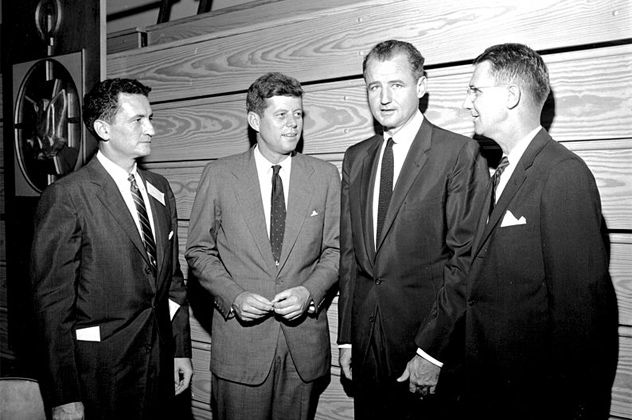
George Smathers was a US Senator from Florida from 1951 to 1969 and is little more than a footnote in the pages of history. Most people only know one thing about him: Supposedly, during his primary campaign against Claude Pepper, Smathers is said to have used his voters’ general lack of education during a speech laden with unfamiliar words which would sound dirty to anyone who didn’t understand them.
“Are you aware that Claude Pepper is known all over Washington as a shameless extrovert? Not only that, but this man is reliably reported to practice nepotism with his sister-in-law, and he has a sister who was once a thespian in wicked New York. Worst of all, it is an established fact that Mr. Pepper before his marriage habitually practiced celibacy.”
Smathers denied ever giving the speech, even offering a $10,000 reward to anyone who could prove otherwise—a deal nobody took. In the end, it didn’t matter, as Smathers defeated Pepper in the election.








